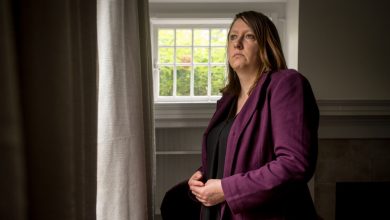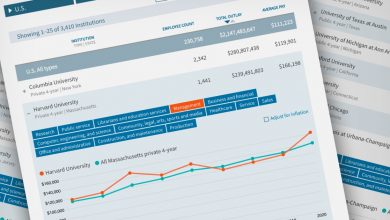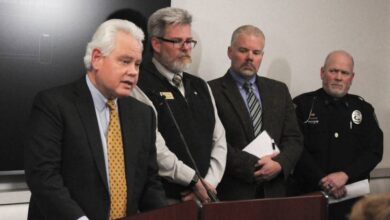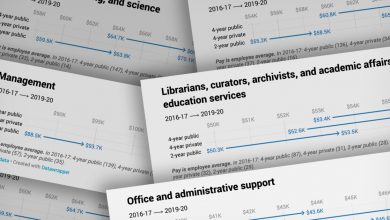2 College-Leadership Searches in Florida Struggle to Field Candidates
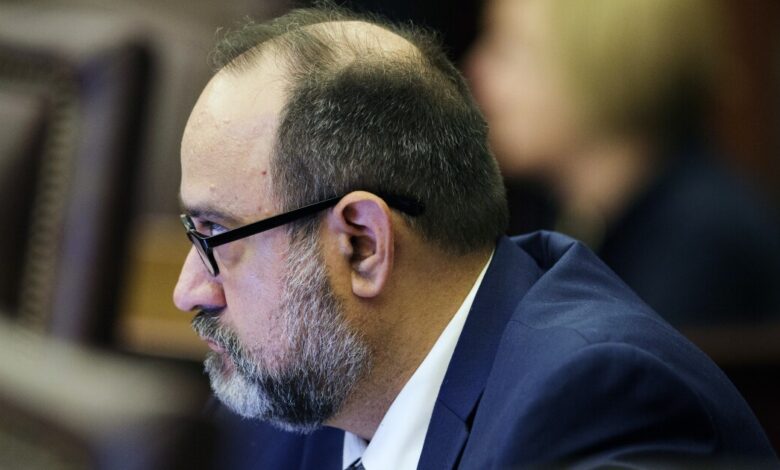
[ad_1]
Just eight candidates applied this summer to lead the State University System of Florida, and few of them had extensive experience actually working at a university in the United States.
The system’s Board of Governors chose State Sen. Ray Rodrigues, a Republican who has worked for a state university. Rodrigues is also a close ally of Gov. Ron DeSantis, another Republican, who has been a harsh critic of higher education in the state.
Meanwhile, at Florida International University, some 70 people applied to be the institution’s next president. But the top three candidates picked by the search committee dropped out, according to the Miami Herald, and the sole finalist is the interim president — who hadn’t even applied for the position and had previously said he wasn’t interested.
To some observers, those results signal that the state’s political climate is deterring candidates to lead public universities. Three other such universities are also seeking new presidents: Florida Atlantic University, Florida Gulf Coast University, and the University of Florida.
“It would be naïve to not consider that high-profile state political climates are a major factor in possible candidates’ shying away from applying,” said Felecia Commodore, an associate professor of educational foundations and leadership at Old Dominion University. “Florida has had a lot of press lately regarding what some would call a heavy-handed approach to governance from the state executive branch in relation to its public institutions,” Commodore said. A Chronicle analysis this year called it the “red-state disadvantage.”
Florida has had a lot of press lately regarding what some would call a heavy-handed approach to governance from the state executive branch in relation to its public institutions.
Among the issues Florida’s public colleges have faced under DeSantis are new laws that require them to: survey the campus on issues of “intellectual freedom”; restrict instruction on issues of race, racism, and gender; enshrine a stricter post-tenure review system; force faculty members to post their entire syllabi online before the start of each semester; and change accreditors within the next decade.
Florida has also been in the national news over academic-freedom controversies. Last year the University of Florida barred several professors from serving as expert witnesses in voting-rights litigation against the state. A recent Chronicle investigation revealed that the university’s initial decision in the case, reversed after a week of bad publicity, stemmed not from top-down orders from Tallahassee but from the campus’s own bureaucracy.
Commodore said there could be numerous other reasons besides politics that caused would-be candidates to drop out or avoid applying in the first place, including “institutional reputation or history, the amount of current scrutiny of college presidents, a perception of bias toward an internal candidate, and the stress of the job post-Covid-19.”
Whatever the reason, she said, governing boards should be concerned if they are not getting a diverse pool of highly qualified applicants.
Deanne Butchey, a teaching professor in the College of Business at Florida International University, cited another Florida law that probably led many top candidates to bow out of that institution’s presidential search: The new measure now allows public colleges to keep the names of candidates secret until 21 days before a finalist is named.
Previously, the public would have known the names of all candidates for a presidential position during the entire hiring process.
None of the top three candidates wanted their names to be public unless they were the sole finalist because they were also in the running for other positions, said Butchey, who is chair of Florida International’s Faculty Senate and was on the search committee for the new president.. After those candidates dropped out, the search committee approached the interim president, Kenneth A. Jessell, who has been the university’s chief financial officer since 2009.
Although the top candidates identified by the search committee were all “superstars,” Butchey said, Jessell is an ideal choice because he understands the university and the community it serves.
Another candidate would have had to adapt and learn the complexities of working in South Florida, she said. “Someone coming in with a national perspective,” she said, “will not comprehend the complexity of our diverse community.”
A candidate from outside Florida would also “have to circumnavigate the political environment that we’re in,” Butchey said, “and those connections take a long time to build.”
[ad_2]
Source link


